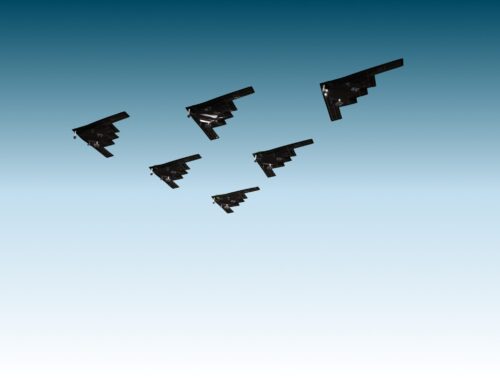(April 28) The full House of Represenatives today passed the IMPROVE Act with only a couple hours of debate and few amendments. The bill was accompanied by a report containing a cost estimate from the Congressional Budget Office saying “Although the bill might yield improvements in the efficiency and effectiveness of DoD’s acquisition system, CBO has no basis for determining whether such improvements would occur or to what extent they might result in savings to the government to offset some or all of the above implementation cost.” The committee concurred with the CBO findings in the report.
—–
(April 21) The House Armed Services Committee today unanimously passed the IMPROVE Acquisition Act , claiming it will complete Congresses’ overhaul of the defense acquisition system—and save taxpayers $135 billion to boot.
Committee members touted the Act (see below) as a companion piece to last year’s Weapons System Acquisition Reform Act (WSARA) that will address how DOD buys $200 billion a year in services. The IMPROVE Act has four main goals: Assessing and monitoring the performance of DOD’s procurement system; strengthening the acquisition workforce; enforcing DOD’s financial management; and maintaining the defense industrial base.
The first goal is the most complex and has presented the steepest challenge to past reform efforts. The IMPROVE Act would:
- Charge DOD’s Performance Assessment and Root Cause Analysis (PARCA) office with making sure DOD measures acquisition system performance. This stems from the panel’s chief complaint that there’s currently no way to measure whether DOD’s myriad contracting offices, directorates and bureaus are doing their job. The choice of PARCA as the best organ for this function generated some criticism from DOD, since PARCA was recently created under the 2009 Weapons System Acquisition Reform Act (WSARA) and only has some 20 employees so far.
- Require the Government Accountability Office (GAO) to assess whether the Joint Requirements Oversight Council (JROC), which helps determine requirements for major weapons programs, incorporates input from other Defense Department acquisition oversight bodies as directed by WSARA. It would also step up oversight of the Joint Capabilities Integration and Development System (JCIDS), established by the Bush administration to coordinate acquisition requirements across the services. The panel found that “obtaining consistent, realistic requirements as a basis for the acquisition process is a critical problem in the defense acquisition system.
- Require each of the services to establish requirements for services acquisition, and DOD to report on whether weapons acquisition procedures are being improperly applied to services contracting. It would also revise the Federal Acquisition Regulaton to include more references to services acquisition. While services—encompassing everything from catering to computer programming to battlefield security contractors—now constitute the bulk of DOD’s purchases, the panel found that “the requirements process for services contracting is almost entirely ad hoc.
Other titles of the Act would offer performance incentives to acquisition workforce personnel; require DOD to discipline DOD offices who don’t make their books audit-ready, including withholding funds; and strengthen the defense industrial base by increasing competition. Importantly, it would also require contractors to certify that they don’t owe taxes.
Panel members claim the reforms will produce $135 billion in savings over five years, based on GAO’s assessment of cost overruns in DOD contracting. While we would love to believe that, we’ll have to drill down on that number a bit further. Stay tuned for more on our own recommendations as the bill makes its way to the House floor.
—–
(April 14) The following is a statement by TCS President Ms. Ryan Alexander on H.R. 5103, the Implementing Management for Performance and Related Reforms to Obtain Value in Every Acquisition (IMPROVE) Act of 2010. The Act legislates the recently released recommendations of the House Armed Services Committee’s Defense Acquisition Reform Panel, co-chaired by Reps. Rob Andrews (D-NJ) and Mike Conaway (R-TX).
“We have long argued that the Defense Department’s acquisition of hundreds of billions in services is in dire need of reform. We are heartened by the attention paid this neglected area by the House Armed Services Committee Defense Acquisition Reform Panel, and support any efforts that will lead to better oversight and management. However, such reforms are only as good as their implementation and enforcement, and we call on Congress and the Defense Department to make sure this mandate becomes reality.”










